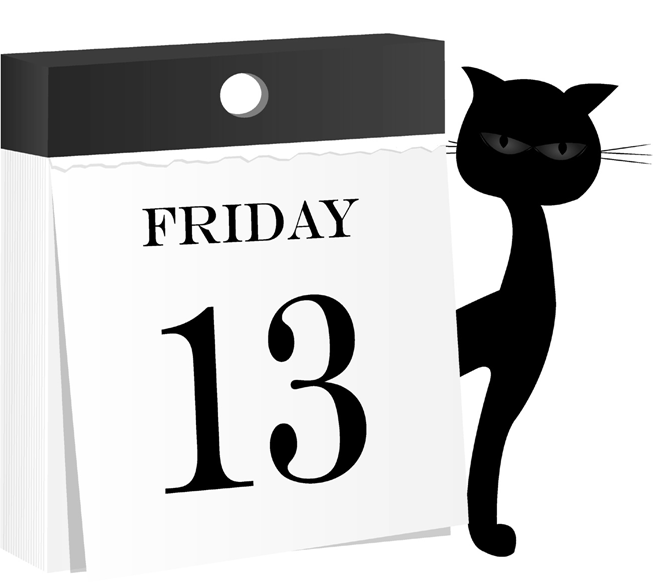
Every society in the world has beliefs that go against all scientific or logical thinking. These beliefs are called superstitions, and most people will encounter some superstitions at some time in their lives. Some people almost live by superstitions and won’t do anything without considering whether it will bring them good luck or bad luck. Some people are very careful which day of the week or date in the month they get married on, open a new company, sit a driving test, etc. Some people refuse to travel by air on certain days.
There are many traditional Chinese superstitions. For example, the strong belief in the close links between the living and the dead. Several festivals are held each year to give offerings to the dead, and any death by accident or foul play is to be feared, as the ghost may return, and perhaps seek revenge, on the seventh night after the death. Even sweeping out a house may bring bad fortune if it is done at Chinese New Year. Of course, the most important Chinese superstition is the belief in, and importance attached to, fengshui. Many buildings are designed and built with as much concern for good fengshui as for good architectural design. Numbers are also given great importance, mainly because the word with a slightly different tone can suggest good or bad luck, a long life, wealth, etc. The importance given to numbers can be seen by the fact that in Hong Kong, a registration number for a motor vehicle is sometimes bought for many times the price of the car!
Of course, Western societies also have many superstitious beliefs. One of the most famous examples of superstitious beliefs in Britain is that Fridays are not lucky days — particularly for people at sea. This belief almost certainly comes from the fact that Jesus was said to have died on a Friday. The British Naval Command once decided to prove that this belief is nonsense. They built a ship which they started and finished on a Friday. They called the ship Friday and even found a captain whose surname was Friday. It had its first voyage on a Friday. The ship disappeared and has never been seen again! The British Navy has consistently denied that this story is true, but their denials are unimportant; generations of British seamen have accepted every word of it.
Superstitions can never be explained or even defeated by reason and logic. In many cases they originated in ancient, primitive religions in which people worshipped the elements in nature in the hope that these might bring them some help to survive in the very harsh conditions of the time. One example of these early superstitions is that touching wood will bring good luck, or at least avoid bad luck. This reflects the primitive belief that every natural object, a tree, for example, was inhabited by a particular god. The importance that was once given to fire and iron still exists today with the carrying of a piece of coal or a small horseshoe as a good luck charm. Salt, another natural material, signified bad luck if it was spilt, because for centuries it was the only means of preserving meat in winter. Without salt, the family would probably die.
To primitive societies, it was essential that the home was blessed with kindly spirits. The centre of every home was the fireplace, the part of the home where the ancient Romans believed the household gods lived. In Western Europe, the fireplace was thought to be the home of fairies who brought good luck. Some people even thought that they helped with the housework during the night. When a family moves to a new home, it is still traditional, in some parts of Britain, to take the embers from the old fireplace and burn them in the new one. Housewarming parties, which many people will arrange when they move into a new house, are a development of this custom.
Work in the kitchen is an area of life that is particularly rich in superstitions. Some people believed a meal would be spoilt if the food was stirred in the opposite direction to the movement of the sun. In order not to offend hens and so stop them laying eggs, no eggshells were thrown on the fire. Bread was particularly important in superstitions. It was thought to be extremely bad luck if bread failed to rise in the oven, because it was believed that the devil hid inside unrisen bread. For this reason a cross was cut in the top to help the bread rise and also to let the devil out (and many loaves sold today still have a cross cut into them). When slicing bread, it was considered very foolish to slice off both ends of a loaf, as the devil would then be able to fly all over the house.
Even the dining table has superstitious significance. If a white cloth is left on a table during the night, the household will soon be in need of a shroud— in other words, a member of the family will soon die. Above all, never allow thirteen people to sit down and eat at the same table. This superstition is often associated with the traditional story of the Last Supper, in which thirteen people were present at the final meal taken with Jesus; since one of them betrayed him, the number thirteen is considered unlucky. But the belief is even older than Christianity. The ancient Vikings also believed in this superstition, but no one really knows where the belief comes from or how old it really is.
Outside the house, there are many more superstitions that may bring good or bad fortune. One of the most widely known superstitions is the one about not walking under a ladder in case a tool or a pot of paint falls from above. But the real reason is far older than that. Anyone walking between a ladder and a wall was “breaking the triangle” — an early Christian symbol. Another theory on the origin of the ladder superstition suggests that the ladder was once associated with public executions. One method of executing a criminal was to hang the victim from a ladder so that he dropped under it.
These superstitions may seem rather foolish to people from other countries, whose beliefs are different. But every culture has its own superstitions and nobody is really in a position to mock. It is very easy to dismiss superstitions as rather silly or childish, but is there anyone who hasn’t turned to lucky charms or certain forms of behaviour which might bring good luck at some time? Is there anybody who doesn’t have a lucky number or a lucky colour? Perhaps it doesn’t really matter whether or not these beliefs are actually true, what really matters is that we believe that they work and, because of the confidence they give us, they do seem to bring good luck.
Whatever the truth about superstitions, I will always keep my fingers crossed that I never break a mirror or, touch wood, walk under a ladder on Friday the 13th!



